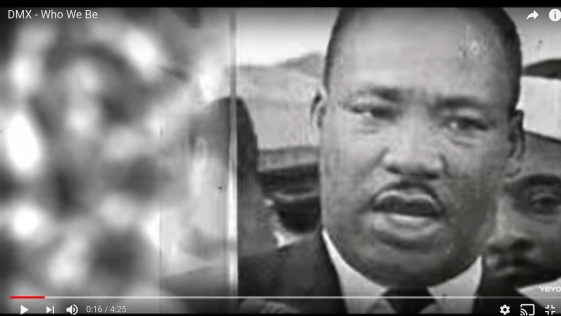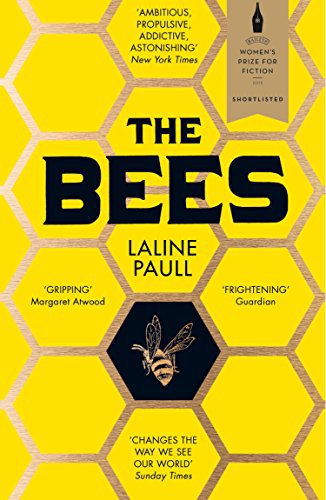Earl Simmons, better known as DMX, was born on December 18th, 1970 in Baltimore, Maryland. After living in Baltimore for only a few years, he joined his family in their move to Yonkers, New York; the place in which he would later claim as his hometown. Upon arriving in Yonkers, an unstable home life landed DMX in a group home where he soon began to turn violent. These violent tendencies and his inability to follow the law would ultimately result in his youth being riddled with discrepancies with the law. Although the streets were relentlessly calling his name, DMX soon found his escape from the poverty and violence that began to consume him; Hip-hop. He named himself DMX for digital drum machine. During the early stages of his hip-hop career, he was known as a DJ and a “human beatbox”. He would later begin freestyle rapping which would increase his popularity and start his transition into a full-time rapper. He initially struggled to stay under a label, until he discovered Def Jam Records where he took the rap game by storm with the release of his debut single, “Get at Me Dog”. His song quickly became a chart topper, paving the way for the upcoming album that he was planning to release. His success in the rap game also opened up opportunities in the film industry; although his movie fame would never come close to rivaling his notoriety in hip-hop.
The song, “Who We Be”, was written by DMX and debuted to the public on September 25, 2001. The song was released as the second single from DMX’s fourth album, “The Great Depression”. At it’s peak, the song reached 60th in the Hot 100. “Who We Be” was also nominated for a Grammy for best solo rap performance, but finished second in the running. The song was also accompanied by a music video that was directed by Joseph Kahn and produced by Lanette Phillips and Stefan Belafonte.
The music video created for “Who We Be” contains DMX rapping the entire song from behind bars. Throughout the duration of his rapping, the video cuts to clips of the horrid conditions forced upon black people that he raps about. DMX uses his lyrics to depict the pain hidden within black communities all over the country. No matter the location, from behind bars, to the streets, to anywhere in between; the life of a black person fails to hold the same value as its white counterparts. The chorus, “they don’t know, who we be”, is a constant reminder to the audience that those who are not black fail to understand those who are and the struggles they face. From the oppression enforced by the police to the killing of our own, he tells the story of a community that is struggling to survive. Families are being torn apart due to a system that was built to destroy and limit the success of the black race. Nevertheless, in his will to live, DMX refuses to give up and confirms that he will continue to fight.

The music video for “Who We Be” repeatedly shows images of Martin Luther King Jr. and other iconic scenes of the American integration movement. This visual rhetoric evokes the idea that the subject matter being discussed in DMX’s lyrics is somehow related to the historical moment of the Civil Rights Movement.
Rapping from inside of a jail cell, the combination of images cements the primary thesis evident in Michelle Alexander’s text The New Jim Crow. Alexander argues that “he fact that more than half of the young black men in many large American cities are currently under the control of the criminal justice system (or saddled with criminal records) is not-as many argue-just a symptom of poverty or poor choices, but rather evidence of a new racial caste system at work” (16). The music video emphasizes the lyrics of the song because it clearly asserts that incarceration is the next form of racial subjugation in a line of historical oppression, a new articulation of a well-known racial caste system. Who We Be also depicts the dehumanizing nature of prisons, and specifically the immorality of solitary confinement. DMX raps, “The twenty-three hours that’s locked, the one hour that’s not/The silence, the dark, the mind so fragile/The wish that the streets would have took you when they had you”. These same atrocious conditions are described in Baz Dresinger’s Incarceration Nation, which demonstrates that, globally, punishment is articulated under the pretense of rehabilitation. The idea of the supermax and other prison elements are a large export of the United States, causing more and more individuals to face a sentence unfit for any person. Additionally, DMX exemplifies in his lyrics what Bethie Richie, in her work Arrested Justice, would call the “prison nation”. Specifically, “What we seeing is/The streets, the cops, the system, harassment/The options, get shot, go to jail, or getcha ass kicked/The lawyers, the part they are of the puzzle/The release, the warning, ‘Try not, to get in trouble’”. DMX describes the plight of African American men living in impoverished communities in which they are subjected to a horrible dichotomy of either trying to survive in an economically depressed, violent neighborhood, or being locked up for the benefit of prison supplying corporations. Richie contends that the prison nation expands far past jailhouse walls, as “A prison nation refers to those dimensions of civil society that use the power of law, public policy, and institutional practices in strategic ways to advance hegemonic values and to overpower efforts by individuals and groups that challenge the status quo” (13). Even if some men aren’t physically incarcerated, society restricts their living conditions to those comparable to the hardships of prison life through extreme policing and minimal welfare support. Difficulties in obtaining a job or securing public housing becomes even more difficult for a previously incarcerated individual, who then must make difficult choices and likely break the law again just to survive. As DMX says, the system releases people back into society, but they are not able to “try not to get in trouble” because their lives are still bound by the prison nation.
A remix of “Who We Be” is featured on The Dogz mixtape: https://www.youtube.com/watch?v=W5zUsDPEu6c . The original music is altered in tone, but the most novel is the addition of Tupac Shakur’s hook from his song “Baby Don’t Cry”. This verse repeats the words “Baby, please don’t cry, you got to keep your head up/Even when the road is hard, never give up”. This remix adds a note of optimism to the overly pessimistic song. It is also notable that Tupac is the artist mixed into “Who We Be” because of the nature of his death. Tupac was killed five years before “Who We Be” was released in a drive-by shooting. This type of violence is closely related to the detriment of the prison nation which consistently allows, and arguably encourages, black and brown bodies to be, if not controlled and profited upon in prison, killed without remorse.
Advertisements Share this:





